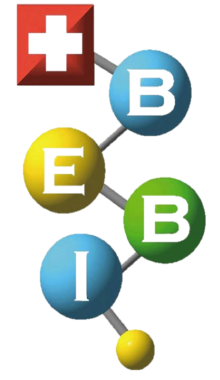研究主題:乳癌特定突變對亞洲病人之影響
撰寫:學生曾子洋
乳癌做為相當常見的惡性腫瘤類型,並是台灣甚至全球女性癌症相關死亡的主要原因,一直是熱門的生醫研究主題。不論從表徵到病人的基因型,抑或是致病因子、各式療法的效果比較與淺在的相關突變基因,如熟知的BRCA1與BRCA2等,生醫界已累積許多的研究成果,但眾多的研究資料皆是取自於西方的病患,結果是否會因地域不同而有差異仍屬未知,故黃教授的研究團隊於去年發表他們對於亞洲乳癌病患的相關研究成果。
乳癌有多種不同的亞型,常以癌細胞表面上是否呈現指定受體做為分類依據,其中包含動情激素受體(Estrogen receptor, ER)、黃體激素受體(Progesterone receptor, PR)與人類表皮生長因子受體(Human epidermal growth factor receptor-2, Her2)三者。若癌細胞膜上皆未表現以上三種受體,則將該類型的乳癌稱之為三陰性乳癌(Triple-negative breast cancer, TNBC)。三陰性乳癌因缺乏相關的受體,故無法利用標靶型荷爾蒙治療,而造成較差的預後與較低的痊癒率,也有較高的機率產生復發。
黃教授及其研究團隊收集了台灣128位帶有BRCA基因突變的病人以及4754位未帶有BRCA基因突變病人的醫療紀錄後發現,在亞洲帶有BRCA基因突變的病患會更早罹患乳癌(BRCA vs. Non-BRCA: 43.9歲 vs. 53.2歲),同時帶有BRCA基因突變的病患除有顯著高的機率罹患三陰性乳癌(BRCA vs. Non-BRCA: 52% vs. 12%, p < 0.001),也有較高的機率形成對側乳癌。此外他們發現不僅是在歐美的乳癌病患,亞洲的病患若帶有BRCA基因突變,則也有高機率會罹患乳癌以及產生對側乳癌。透過這項研究,黃教授發現在亞洲的病患若帶有BRCA基因突變而會有較高的機率罹患三陰性乳癌同時有顯著上升的機率發生對側乳癌,同時透過分析資料顯示,若帶有BRCA1基因突變並罹患三陰性乳癌的病患,對比非帶有BRCA基因突變的乳癌病患,將有五倍上升的機率發生對側乳癌,故黃教授及其研究團隊於文末就提及,在亞洲的BRCA基因突變的遺傳諮詢以及追蹤仍須要持續改進,以早期發現並增加病人的存活率 [1]。
除探究不同地區的乳癌病患是否存在差異,黃教授也鑽研於乳癌的其他相關研究,如利用循環腫瘤(Circulating tumor)DNA作為乳癌患者復發的預測指標物 [2],抑或是教授也與所上的張瑞峰教授合作使用卷積神經網絡(Convolutional neural network, CNN)來學習乳癌超音波圖像進行輔助診斷 [3],綜合以上黃教授聚焦於乳癌方面的研究,並透過生物資訊分析數據的方式來研究相關問題。
Research Topic: The effect of BRCA on Asian breast cancer patients
Breast cancer, a common type of malignant tumor and the leading cause of cancer-related deaths among women in Taiwan and even globally, has long been a popular topic of biomedical research. The biomedical field has accumulated a lot of research results including patients’ phenotype and genotype, as well as the risk factors, the effectiveness of various therapies and the underlying genetic mutations such as the well-known BRCA1 and BRCA2. However, most of the research data are collected from Western patients, and it remains unknown whether there are differences due to regional difference. Therefore, Prof. Huang’s research team published their results on Asian breast cancer patients last year.
Breast cancer has various subtypes, which are commonly classified based on whether specific receptors are expressed on the cancer cell surface. These include the estrogen receptor (ER), progesterone receptor (PR), and human epidermal growth factor receptor-2 (Her2). The subtype of breast cancer is called triple-negative breast cancer (TNBC) when none of these receptors are expressed on the cancer cell membrane. Due to the lack of relevant receptors in TNBC, patients cannot be treated with targeted hormone therapy, resulting in worse prognosis, lower cure rates, and a higher risk of recurrence or develop contralateral breast (CBC).
Prof. Huang and his research team collected medical records of 128 patients with BRCA mutation and 4754 patients without carrying BRCA mutation in Taiwan. They found that Asian patients with BRCA mutation are more likely to develop breast cancer at an earlier age (BRCA vs. Non-BRCA: 43.9 years vs. 53.2 years) and have a significantly higher probability of developing TNBC (BRCA vs. Non-BRCA: 52% vs. 12%, p < 0.001). Through this study, Prof. Huang found that Asian patients with BRCA mutations have a higher probability of developing breast cancer and CBC, which is same as the result we known on European and American patients. Furthermore, through analyzing data, they showed that patients with BRCA1 mutations and TNBC have a five-fold probability of developing CBC, compared to breast cancer patients without BRCA mutation. Therefore, Prof. Huang and his research team mentioned in the conclusion that genetic counseling and follow-up of BRCA mutations in Asia still need to be improved in order to detect and increase the survival rate of patients at an early stage [1].
In addition to studying whether there are differences in breast cancer patients in different regions, Prof. Huang also conducts research on other related topics, such as using circulating tumor DNA as a predictive marker for breast cancer recurrence [2], or collaborating with Prof. Zhang to train a convolutional neural network (CNN) model on breast cancer ultrasound images for assistive diagnosis [3]. Generally, Prof. Huang mainly focuses on breast cancer related field and uses bioinformatics data analysis to study related questions.
[1] Lin, P. H., Chen, S. C., Tseng, L. M. et al. (2022). Impact of BRCA mutation on the survival and risk of contralateral breast cancer in Asian breast cancer patients. Breast Cancer Res. Treat. 192, 629-637. https://doi.org/10.1007/s10549-021-06446-7 [2] Lin, P. H., Wang, M. Y., Lo, C. et al. (2021). Circulating Tumor DNA as a Predictive Marker of Recurrence for Patients With Stage II-III Breast Cancer Treated With Neoadjuvant Therapy. Front. Oncol. 11, 736769. https://doi.org/10.3389/fonc.2021.736769 [3] Moon, W. K., Huang, Y. S., Hsu, C. H. et al. (2020). Computer-aided tumor detection in automated breast ultrasound using a 3-D convolutional neural network. Comput. Methods Programs Biomed. 190, 105360. https://doi.org/10.1016/j.cmpb.2020.105360
